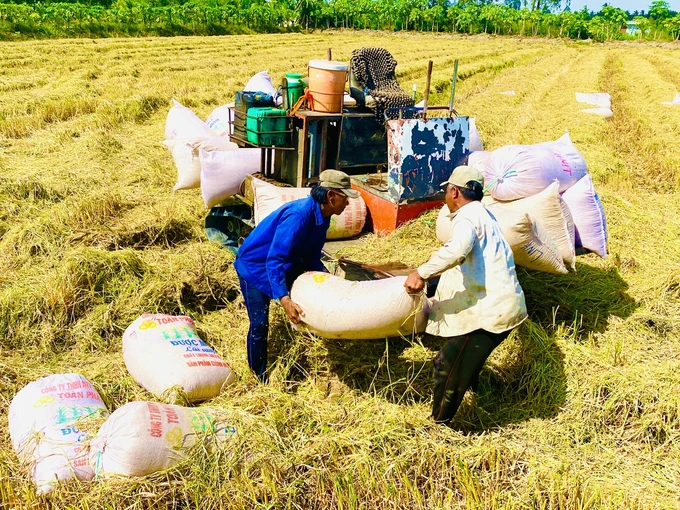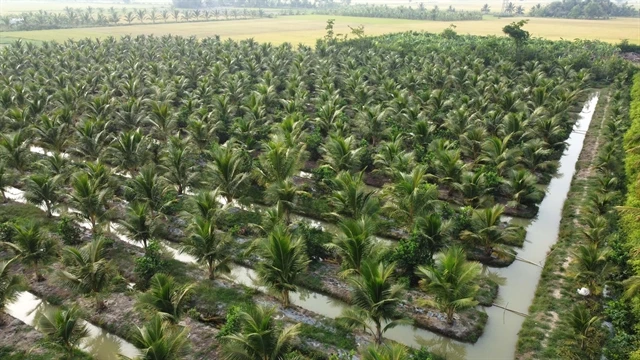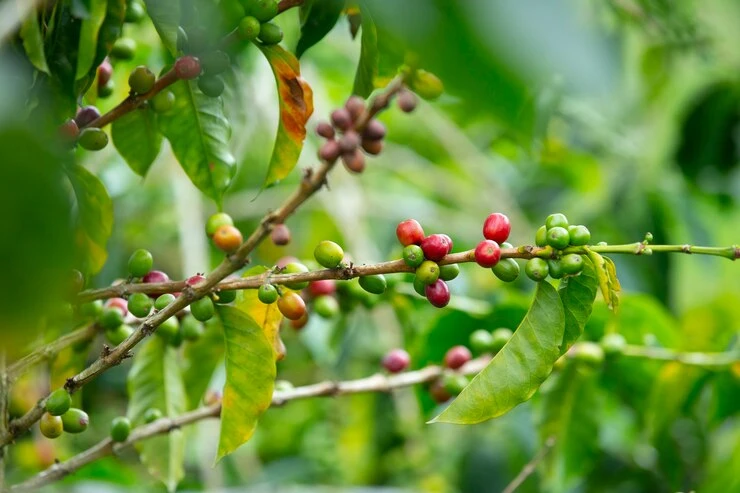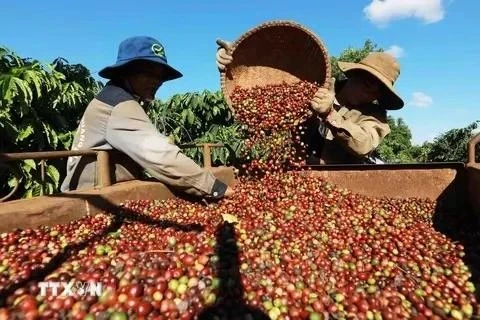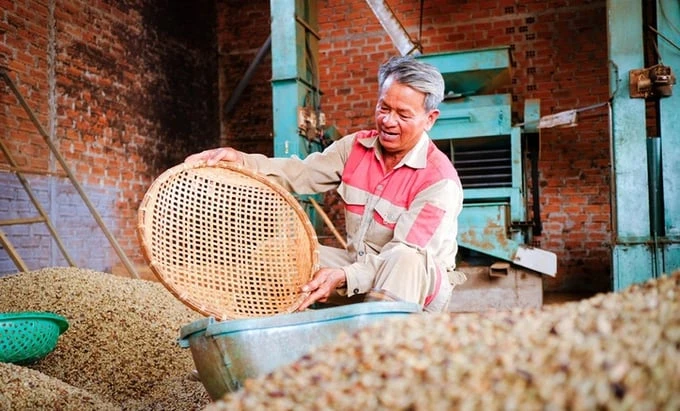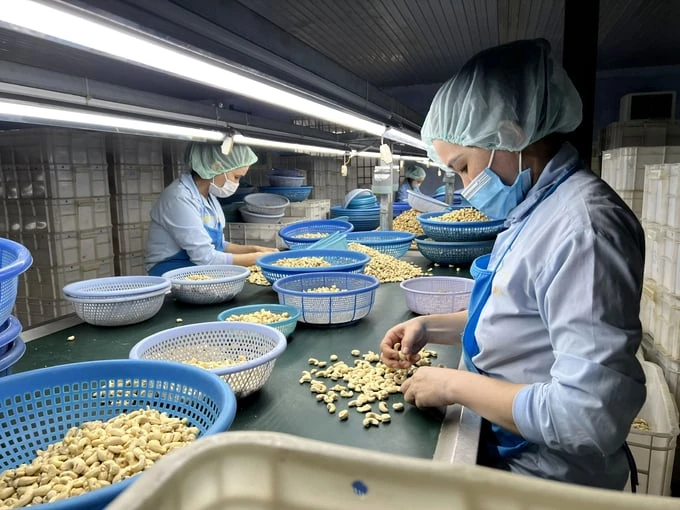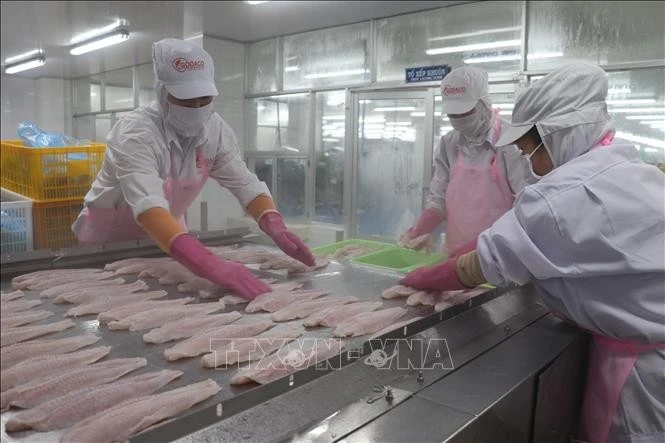(VAN) Experts say regulatory agencies should assume a coordinating role to facilitate the alignment of stakeholders in the rice value chain on work perspectives.
Dr. Nguyen Tien Dinh, the Deputy Head of the Cooperative Economics Department at the Cooperative Economy and Rural Development Agency (Ministry of Agriculture and Rural Development), observed that the Mekong Delta region currently has approximately 180 businesses that are qualified for rice export and participate in the purchasing of rice. Of these, approximately 50 companies have established partnerships for the procurement of rice. These partnerships may involve direct purchases from farmers or purchase through organizations such as cooperatives or agricultural material agents. Currently, these enterprises acquire rice from approximately one-quarter of the total rice-growing area, which is equivalent to approximately one million hectares per year.
"However, input suppliers, rice farmers (or cooperatives), rice procurement systems, companies involved in drying, milling, polishing, exporting, and domestic distribution, as well as consumers, are among the key players in the Mekong Delta rice value chain," Dr. Dinh observed.
Tens of thousands of merchants purchase rice, and the chain is defined by the involvement of thousands of companies in milling, refining, exporting, and domestic consumption. Additionally, there are thousands of input suppliers. Nevertheless, only a small number of companies possess the necessary infrastructure to dry, mill, and refine rice for production, in addition to the ability to directly purchase rice from farmers or cooperatives.
The Department of Crop Production has determined that the cultivation of rice in large-scale rice fields in the Mekong Delta can result in a 10-15% reduction in production costs and a 20-25% increase in output value per hectare. This approach can generate additional profits of 2.2 to 7.5 million VND per hectare in comparison to traditional cultivation.
The decrease in production costs is a result of producers adhering to sustainable agricultural practices in large-scale fields. This approach reduces the use of pesticides and fertilizers, while simultaneously improving the quality, value, and selling price of rice. Additionally, the representative of the Cooperative Economy and Rural Development Agency underscored that farmers who have purchase contracts with companies can produce with assurance, as they are not concerned with unfilled products or price fluctuations.
Dr. Nguyen Tien Dinh stated that the 1 million hectares of high-quality rice initiative would encounter challenges in its effective implementation if it lacked the involvement of scalable and competent cooperatives.
Organizing sustainable agricultural processes, implementing techniques, measuring emissions reduction, and providing input services are all directly related to the organization of farmers' production activities, according to Dr. Dinh. Cooperatives are a critical factor in these activities. The Cooperative Economy and Rural Development Agency has recommended that Ministry leaders implement a program to improve the capabilities of cooperative teams in order to promote cooperative participation. Furthermore, they collaborate with farmer associations at all levels, as well as relevant agencies and ministries, to encourage farmers to participate and illustrate the advantages of cooperative models.
Currently, the Agency is advocating for a vocational training program for cooperative directors. These organizations serve as the foundation for the development and implementation of programs and initiatives that concentrate on cooperatives, including logistics and community agricultural extension.
In 2020, the average rice-growing area per household in the Mekong Delta was 1.24 hectares, which was substantially greater than the national average (0.34 hectares per household) and other regions. The trend toward land concentration has accelerated in recent years, resulting in a rapid increase in rice fields measuring over 10 hectares. This necessitates commensurate development among peasant organizations.
Farmers in the Mekong Delta have transitioned to commercial-oriented agriculture, which emphasizes the production of products for the market, as a result of economic development and state support policies. Consequently, they can enhance production conditions, improve their quality of life, and increase their income.
In agreement with Dr. Dinh's viewpoint, Dr. Dang Kieu Nhan, Director of the Mekong Delta Development Research Institute, underscored the necessity of enhancing the rice value chain at various stages, with a particular emphasis on the promotion of close collaboration among farmers, cooperatives, and businesses.
"The current rice value chain is analogous to a forest, in which sustainable development is contingent upon a combination of internal factors. The relationships between these parties, however, are not entirely cohesive, which leads to misunderstandings regarding their respective interests and objectives", as Dr. Nhan elaborated.
He gave an example, observing that farmers and cooperatives frequently lack a business perspective, which hinders their ability to understand market dynamics and business opportunities.. Conversely, the absence of risk-sharing mechanisms places significant pressure on producers, while companies and traders profit from their products. Cooperatives and producers' restricted capabilities impede the expansion of the rice value chain by contributing to a lack of business acumen.
Consequently, Dr. Nhan recommended that regulatory bodies, such as the agricultural extension system, serve as coordinating entities to encourage effective collaboration and mutual comprehension among stakeholders during the implementation of the 1 million hectares of high-quality rice initiative. Collaborating with farmers and cooperatives is essential for the implementation of scientific techniques and efficient agricultural practices.
"To facilitate the development of mutually beneficial agreements among farmers, cooperatives, and businesses, it is imperative to establish consistent dialogues and guarantee the dissemination of transparent information." Dr. Nhan analyzed that this creates favorable conditions for working toward a shared objective, minimizing risks, increasing profits, augmenting product value, and improving market competitiveness.
